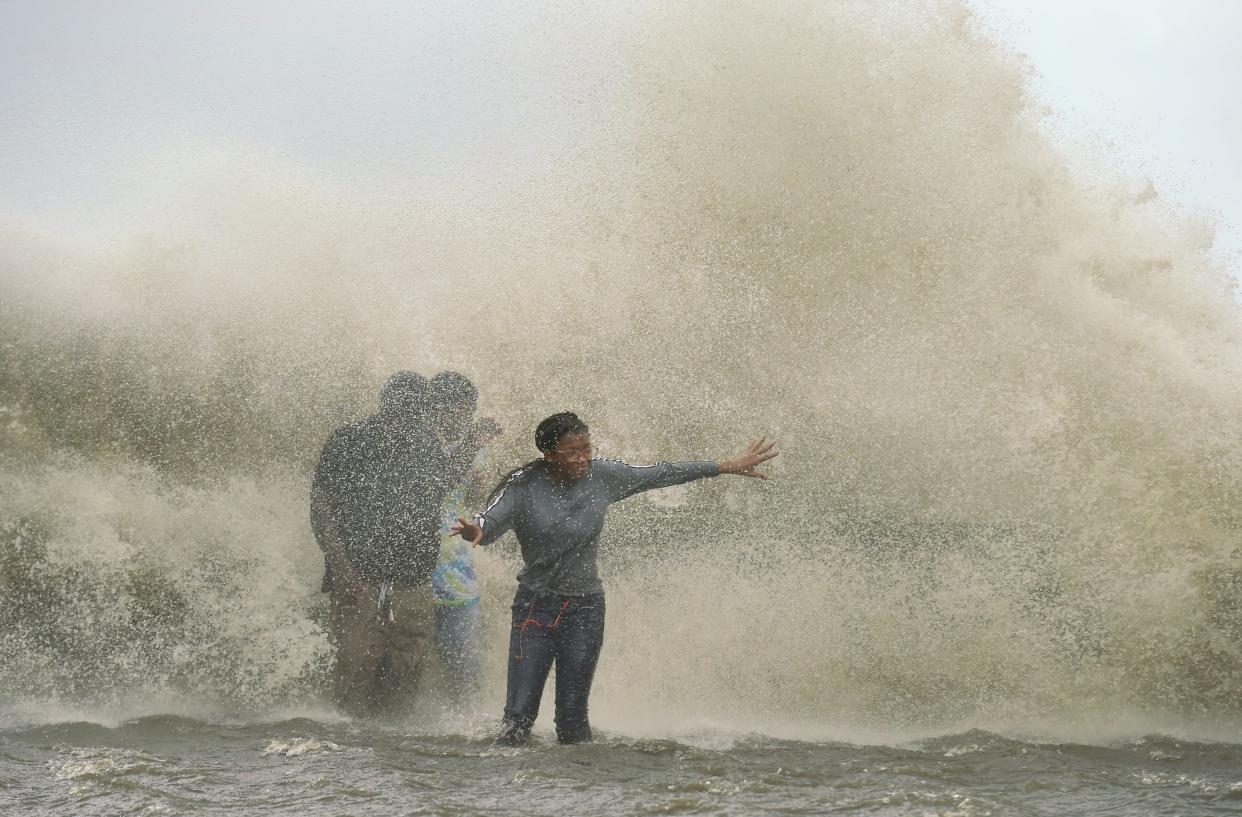'Explosive' hurricane season predicted for 2024: South Carolina at high risk for impact
Residents who live in South Carolina, as well as tourists who plan on visiting the state, should be aware of 2024's 'explosive' Atlantic hurricane season.
AccuWeather experts predict the Carolinas will be at a "higher-than-average risk" for direct impact, along with the Florida Panhandle, South Florida, and the Texas coast. Residents from other coastal areas should also be on the lookout for severe weather.
"All residents and interests along the U.S. coast, including Puerto Rico and the Virgin Islands, should have a hurricane plan in place and always be fully prepared for a direct impact," said AccuWeather Lead Hurricane Forecaster Alex DaSilva.
Turbulent weather this year in the tropics could even exhaust the entire list of names for hurricanes and tropical storms.
"The 2024 Atlantic hurricane season is forecast to feature well above the historical average number of tropical storms, hurricanes, major hurricanes and direct U.S. impacts," DaSilva said.
When does hurricane season begin?
The Atlantic hurricane season begins June 1, running through the end of November. Long-range forecasters at AccuWeather advise residents begin preparing for the storms now. There is also a chance for the first storm system to spin off before June.

How many hurricanes will there be?
In early February, AccuWeather issued a warning about a highly active hurricane season. The current hurricane forecast is lining up with the prediction.
Across the Atlantic basin, 20-25 named storms are forecast, including 8-12 hurricanes, four to seven major hurricanes and four to six direct U.S. impacts. This is well above the 30-year historical average of 14 named storms, seven hurricanes, three major hurricanes, and four direct U.S, impacts.
But wait ― there's more: There is a potential for over 25 named storms this year.
"There is a 10-15% chance of 30 or more named storms this year," DaSilva said.
What was hurricane season like last year?
This year's hurricane season has the potential to rank as one of the most active seasons in history, making it worse than last year's. In the 2023 hurricane season, there was a total of 19 named storms and only four U.S. impacts. Category 3 Hurricane Idalia was the most powerful storm last year, making waves in Florida during late August. Tropical storm Ophelia made landfall in North Carolina while Tropical Storm Harold cast heavy rains over southern Texas. There was also tropical storm Lee, which traveled to the New England coast before landing in Nova Scotia, Canada.

What happens when hurricane names run out?
Did you know that in the past, the Greek alphabet was used to name storms, beginning with Alpha and excluding the letters Q, U, X, Y, and Z? This leaves only 21 letters to use instead of 26. With 20-25 storms predicted to be on the way, names for tropical storms and hurricanes could run out.
Thanks to the World Meteorologist Organization (WMO), the Greek alphabet rule was changed in 2021.
"The use of the Greek alphabet was not expected to be frequent enough to warrant any change in the existing naming procedure," the WMO said on its website. "However, after the record-breaking 2020 season, the WMO Regional Association IV Hurricane Committee annual session in 2021 decided to end the use of the Greek alphabet and instead established two lists of supplemental tropical cyclone names, one for the Atlantic, one for the Pacific."
The list of supplemental names is arranged in alphabetical order. If there are at least 22 named storms in the Atlantic this season, this year will be the first time the supplemental list is utilized, the first name being Adria.
Nina Tran covers trending topics. Reach her via email at ntran@gannett.com
This article originally appeared on Greenville News: Hurricane season 2024: SC at high risk, AccuWeather predicts
